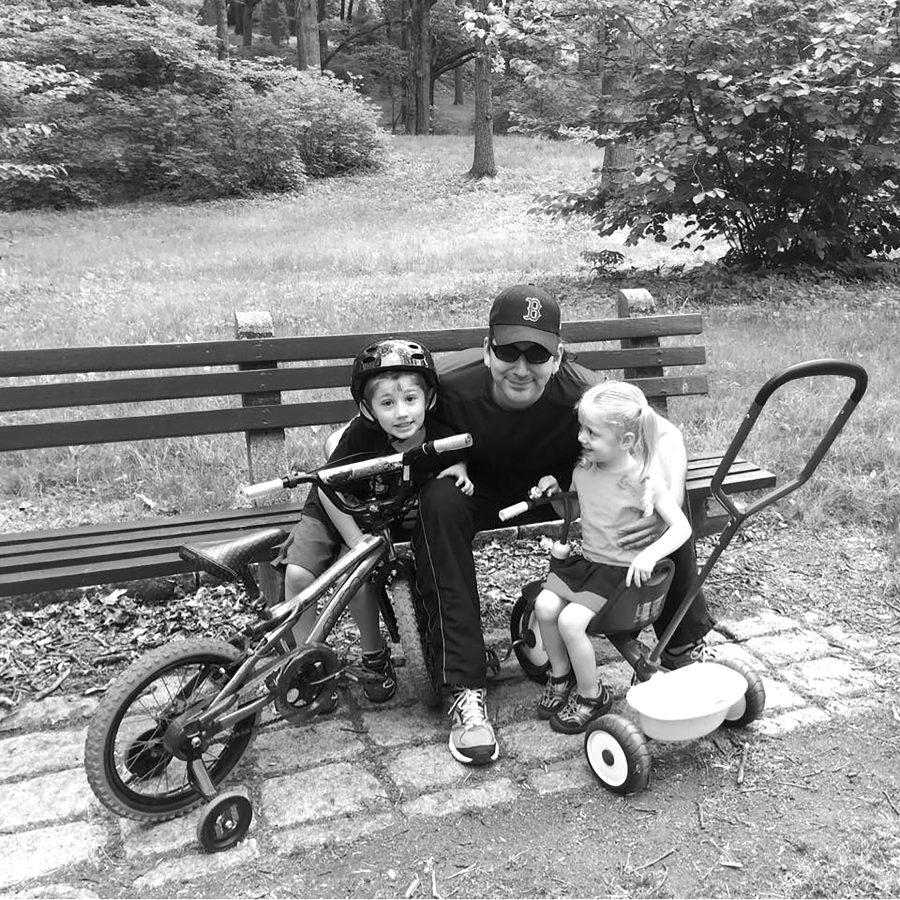September 11, 2015 — Jason Campos stands in the hallway outside of the College of Advancing and Professional Studies (CAPS) office in Wheatley Hall remembering 9/11, fourteen years earlier when he was near that same spot after class.
“That was an interesting day,” he says. “I was in class. I can’t remember what the class was, but I went back up to the Wits End [Café], on the 3rd floor of Wheatley. The manager at the time came up to me and said, ‘A plane hit one of the towers,’ and I had no idea what he meant.”
The Chancellor called off classes for the day and the campus evacuated.
“I remember going back to class the next day and a professor in the English department took about a half hour to talk to us about what all this meant, in terms of this very scary situation, and why it’s important to be cognizant of what’s going on in the world.”
The anti-Islamic sentiment that followed 9/11 nationwide often came up in discussions on campus.
“I had a good friend at the time, Hakim, who was scared because he didn’t know what was going on. We kept seeing these images on television of the planes hitting the buildings, that we’re getting attacked by some place over in the Middle East.”
Professors at the University of Massachusetts Boston come from a wide range of countries and lifestyles.
“They prod you and really try to make you think about what you’re trying to learn. Many of them are from Harvard, which is fine, if you want. But they really do try to make you think of the content that you’re supposed to learn. I appreciate that. The student body is diverse, too. It’s wonderful. I can’t think of a better place to … be.”
Working for Joyce Morgan and Donna Neal in the student activities office, Campos started as a writer on staff at the Mass Media. Soon, he was the Sports Editor, then Managing Editor, and then Editor-in-Chief. He worked hard on the managerial end, just to keep the paper printing week to week.
“I always had an interest in trying to bring students in and have them find a place within our social aspect.”
He was also the Fiction Editor for the Watermark’s 11th volume, Spring 2004.
“I was on committees to review the submissions and make sure everything got a fair shake.”
As an employee, he helped with the administration of several clubs and centers, and always had access to the offices.
“I was part of the back end of making sure that everything functioned well, making sure that I could support those students so that it would function well.”
Campos is a background kind of guy, soft spoken and quick to promote the people around him.
“I’m proud of being a mentor. That’s what I think my legacy is when I was at the Mass Media: a mentor.”
“There was a challenge of funding,” he says. “What I had to do was advocate for resources. It’s not necessarily something that comes naturally to somebody who’s been a journalist. You’re a journalist or you’re trying to be someone who’s making sure that an institutional unit continues to exist.”
He spent a lot of time in the Wits End Café, near where he works now. Working with UMass Boston administrators, Campos learned to measure his expectations and help others, all while learning about diplomacy.
“You want to be a student newspaper, but at the same time, you need to also balance it against trying to get stories out there, and also trying to be a mentor to young students.”
Campos currently works on a middle floor in Wheatley as the Manager of Online Education within CAPS. “It’s an exciting time to be on staff,” he says, “watching the university grow.”
“The campus is constantly changing, as it will. They have a 25-year Master Plan, so it’ll be ongoing and evolving. It’s not going to stop.”
“We have a diverse make up of students, staff, and administrators. Even though we face constant frustrations and challenges because of the construction, it’s just a whirlwind of experience. Even though it’s frustrating at times, we persevere. It can be rewarding and something that you can look back on and say, ‘Yes, I was a part of that.’”
Campos’s father-in-law was a UMass Boston professor in the ‘60s, his wife went to nursing school here as well, with him carrying on the legacy.
“I’d like to see UMass Boston continue with its original mission, the mission of being a source of inspiration for students who want an education in an urban environment.”
“I know that change is inevitable. I also know that it’s important to be a different kind of institution for higher education. We don’t want to be Harvard. We don’t want to be Boston University or Boston College. Not to say there’s anything wrong with those institutions, but we want to be different. We are an institution of higher education that is a resource for people who have grown up in the city of Boston.”
Jason Campos Takes Pride in UMB’s Urban Mission
November 20, 2015





















































